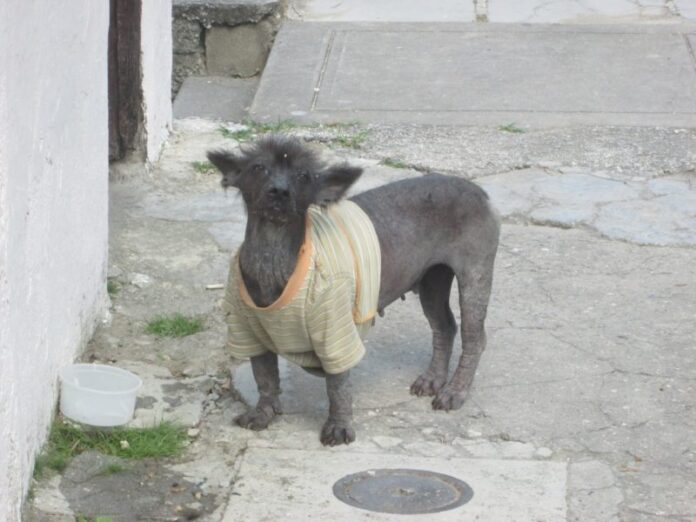
By Eduardo N. Cordovi Hernandez
HAVANA TIMES – Yesterday, I went to a friend’s house for the first time in two months. I stayed on the porch, enjoying the cool evening breeze while he made coffee. Suddenly, like a flash, Canela appeared, performing all sorts of tricks and antics to get me to play with her.
To be honest, I was feeling quite cheerful, but I had no desire to play with dogs, and I even thought, why not? But immediately I thought, why should I? I considered the idea of giving her a pat as a formality to be polite, but with whom, just her and me on the porch? With Canela? And that thought seemed a bit exaggerated to me and even made me smile.
Then I thought it would be like kindling a fire, she would want more! It would be a demonstration of reciprocity that I didn’t feel, and a formal pat would be more offensive to her than a sincere denial.
In response, I said to myself, “It would not only be a slight to the little animal, but even to my friend!” and I began to see the matter as somewhat more complex. I thought that deciding to do something based on what other people might think, even without them being present, would be as if others were conditioning my life, and where would my opinion be in that? Isn’t this selfishness? Well, of course! I have a very good opinion of good selfishness, and I’m not the only one who does.
Personally, I don’t do or refrain from doing something with the intention of harming or not doing good, but the one I am responsible for taking care of is myself. I will never forget what the Avianca flight attendant said to us travelers as the plane took off for El Salvador: “…in case of an accident, oxygen masks will automatically drop from the ceiling. Those with children should know that they should put on the masks before them, as they must ensure that they will protect them because no one else will do it better.” So, the better I take care of myself, the better availability I will have for others.
I thought again that I might be slighting Canela, and I felt infamous. And I thought the least I could do was apologize. I found the reasoning amusing, imagining myself starting a dialogue with her mentally: Look, Canela, I feel sorry for you, but as for me, dogs are neither here nor there. Well, it’s not that I dislike them, but they don’t amuse me either, that’s the truth. So I’m sorry from the bottom of my heart, but I know very well that dogs don’t keep score, and perhaps if I come back tomorrow, you’ll show me the same sympathy as always, to which I might even be capable of showing gratitude! Knowing full well that you would do it without merit, because you would do it without being able to help it, because you’re a plaything of your instincts, but I could do it because I know it would please you…
At this point, I realized that if she didn’t remember the incident and I came back tomorrow, she would once again return with her airs and graces. The best thing I could do would be to make a mental note: “this is what it means not to like affectionate dogs,” and wait until the next opportunity to see what happens. Because if anything were to be changed in me, it would change on its own, without effort, just by observing it, without judging myself for my experiences or for my behavior regarding them: learned by seeing them continually carried out by others, out of habit due to lack of others, to be compared and chosen; whether reproduced by me through spontaneous, automatic, mechanical, or natural learning, or imposed with obligatory nature by other people by virtue of a supposed duty towards society, civilization, or human dignity or what is the same; “what will people say”.
It was like a flash of enlightenment. We don’t have to live by behavioral programs or evaluations of things; this turns us into automatons. If anything, what truly defines a human being is their ability to be spontaneous and unpredictable, which gives rise to their capacity for surprise, bringing joy to themselves and others. So, plans should be short-term and provisional, as they make us prone to the adventure of the new and unknown.
If today I don’t feel like doing something, but internally something tells me I should do it, I won’t complicate things with an inner dialogue that will only serve to make me feel bad about myself. I won’t blame myself because it doesn’t matter whether I do it or not, the only difference is the pleasure it may give me. It’s best to tell myself: “this is what is called wanting to do or not do…such a thing,” and let the subconscious process this information. I have found that the subconscious establishes the rule of no rule: one day in the same circumstances, without even thinking about it! I do it, and on another day, in a similar opportunity, I don’t. And in both cases, I feel satisfied.
Read more from the diary of Edurado N. Cordovi.




